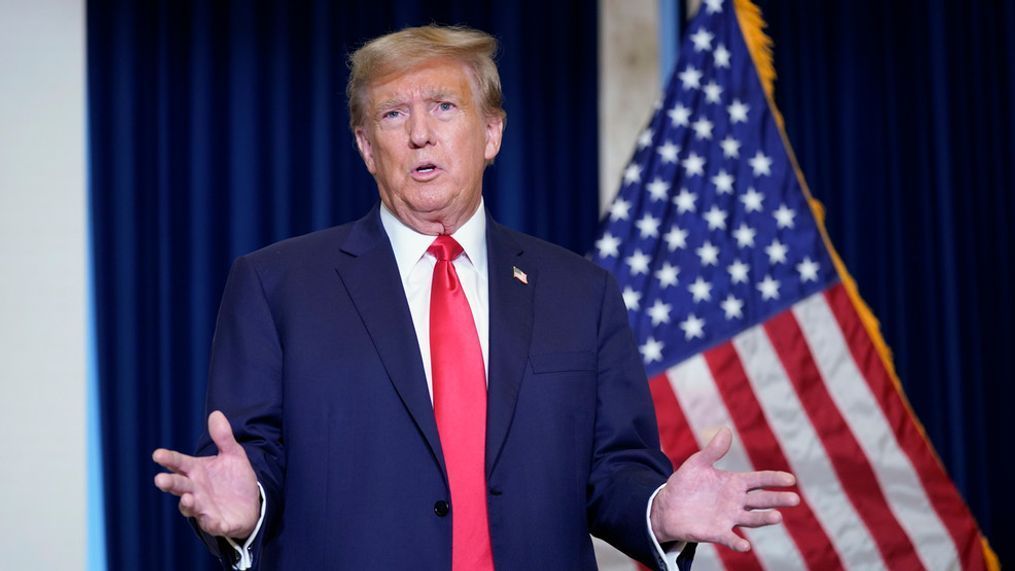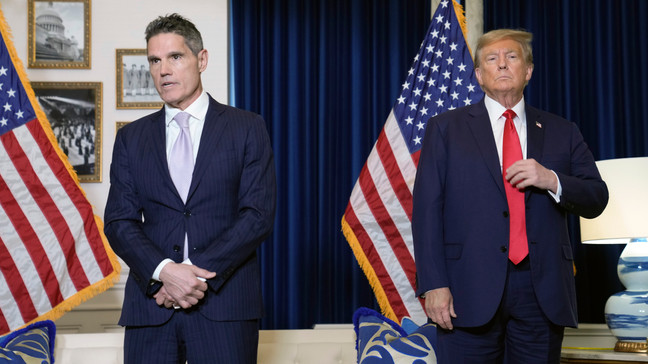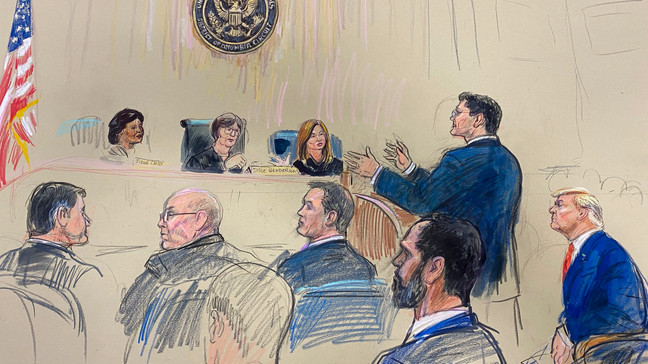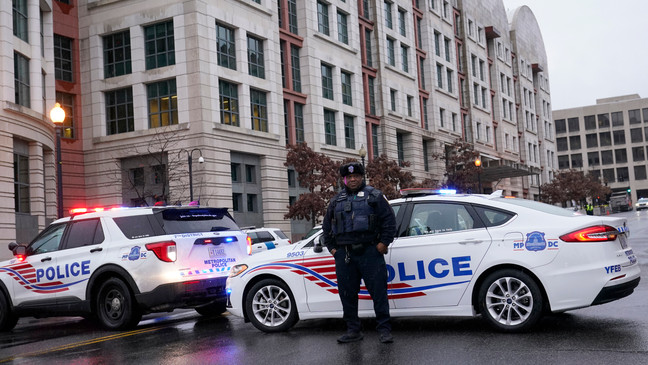Legal experts weigh in on Trump's claim that presidents 'have to have immunity'
(TND) — A three-judge panel heard arguments Tuesday over whether former President Donald Trump is immune from criminal prosecution.
If Trump is found to be immune, the federal election-interference case against him will go away.
If he’s not found to be immune, the case is likely to proceed. But another important question is if the criminal trial planned for early March would still take place before this fall’s election. Trump is the Republican front-runner in the presidential campaign that’s underway.
Tuesday’s arguments are part of the federal case alleging Trump tried to overturn his 2020 election loss to President Joe Biden. Trump is also facing criminal charges in three other cases: election-related charges in Georgia, allegations he mishandled classified documents in Florida, and allegations he falsified business records in New York as part of hush-money payments during the 2016 election.
Special counsel Jack Smith is arguing no American is above the law, even a former president.
Trump’s legal team is arguing that his actions pertaining to the 2020 election and the Jan. 6, 2021, attack by his supporters on the U.S. Capitol are covered by a constitutional immunity afforded to presidents.
“This is an important legal issue, there’s not a lot of law in this area, so I think the Supreme Court is going to be the ultimate decision-maker on this issue on criminal immunity for a former president,” former U.S. Attorney John Fishwick told Sinclair’s Chief Political Correspondent Scott Thuman.
The immunity question has arrived before the three-judge appeals panel in Washington after a district judge rejected Trump’s claims. The Supreme Court previously declined to fast-track the immunity question.
At the heart of Trump’s immunity question might be whether the court sees his alleged crimes as an official function of his presidency.
Attorney and author Alan Dershowitz said the special counsel’s team overstated their case to the federal appeals judges, two of whom were appointed by Biden and the other appointed by former President George H.W. Bush.
“What they started by saying is that no president, no matter how presidential his act may have been, continues to have immunity after he leaves office,” Dershowitz told Thuman. “That goes much too far.”
Constitutional law Professor Ofer Raban of the University of Oregon wrote that presidential immunity against civil lawsuits for their official actions has been established, but the question of criminal immunity is charting new legal ground.
The Supreme Court decades ago recognized that presidents have immunity from civil lawsuits to allow them "the maximum ability to deal fearlessly and impartially with" the duties of their office.
But Smith’s team has argued that the civil immunity shouldn’t carry over to the “much weightier” area of criminal prosecution. Raban noted that civil lawsuits can be filed by practically anyone and for myriads of petty reasons, while criminal prosecutions involve various checks and balances.
“And the court may say this act of Jan. 6, or the acts on Jan. 6, were more political than they were presidential,” Dershowitz said. “So, they might split the difference that way.”
Dershowitz said Trump had some “good points” that the definition of a presidential act should be broad given the all-consuming nature of the office.
“Trying to draw the line between presidential and political is going to be a very tough one for the courts,” Dershowitz said.
Fishwick said he expects the three-judge panel will rule quickly, probably within a week, and he expects they’ll side with the prosecution that Trump isn’t immune.
The Associated Press reported that the appeals judges expressed skepticism Tuesday over Trump’s position.
Both Dershowitz and Fishwick expect the immunity question will ultimately end up before the highest court in the land.
“The Trump legal team is probably hoping that things get delayed, that the Supreme Court does not issue a decision so that this trial does not take place before the 2024 election,” Fishwick said.
Trump’s team has also argued that Trump was acquitted in his impeachment trial, so he therefore should remain immune against criminal charges.
But Raban called the impeachment portion of the debate a “sideshow.”
“The principal action in this appeal is whether presidents have absolute criminal immunity for official acts,” he wrote.
Trump spoke after Tuesday’s hearing, reiterating his innocence, claiming his actions were intended to root out “voter fraud,” and again framing the prosecution as politically motivated.
“So, they're losing in every poll. They’re losing in almost every demographic,” Trump said of Biden’s campaign.
“Numbers came out today that are really very mind-boggling if you happen to be Joe Biden, and I think they feel this is the way they're going to try and win,” Trump continued. “And it’s not the way it goes. It will be bedlam in the country. It’s a very bad thing, it’s a very bad precedent as we said. It’s the opening of a Pandora's box. And it’s a very sad thing that’s happened with this whole situation. When they talk about a threat to democracy, that is your real threat to democracy. And I feel that as a president, you have to have immunity, very simple.”
Dershowitz said he’s not a political supporter of Trump, but he also doesn’t see any of the criminal cases as “strong enough to proceed against the man running against the incumbent president.”
None of the cases are the “slam dunk” they should be in such a sensitive and special situation, Dershowitz said.
But Dershowitz does expect Trump will be convicted in at least one of the four pending cases, most likely this federal election case or the election-related case in Georgia.
Dershowitz, however, expects the convictions could be reversed on appeal, even though that might take place after the election.




